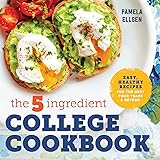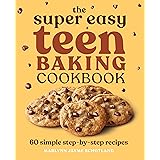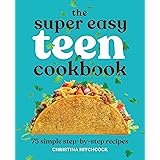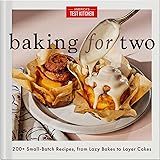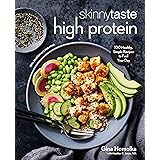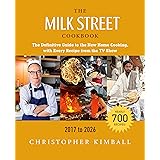Many individuals striving for fitness and muscle development often fall into the trap of believing that dietary supplements alone can build a strong physique. This misconception, often highlighted in discussions like the insightful video above, can lead to imbalanced nutrition and unmet fitness goals. The truth, as emphasized by health experts, is that while supplements have a role, they cannot replace the foundational importance of a balanced, whole-food diet. The core issue arises when people prioritize synthetic shortcuts over natural nourishment, neglecting the comprehensive nutrients vital for true body building.
The solution lies in understanding nutrition holistically. Rather than viewing “dabbe” (supplements or packaged foods) as the sole path to a healthy body, we must acknowledge that genuine strength and wellness stem from a diverse intake of protein, carbohydrates, healthy fats, vitamins, and minerals, all in appropriate quantities. This article will delve deeper into the wisdom shared in the video, elaborating on how a robust diet, rich in nutrient-dense foods like nuts and seeds, forms the bedrock of physical development, with supplements serving as beneficial aids rather than primary builders.
The Pitfalls of Over-Reliance on Supplements for Body Building
It is a common scenario: individuals invest heavily in various protein powders, mass gainers, and pre-workouts, convinced these alone will sculpt their desired physique. However, as the health coach rightly points out, a body cannot be built effectively on supplements alone. These products, by their very nature, are designed to supplement, not substitute, a complete dietary intake. They often lack the complex matrix of micronutrients, fiber, and phytochemicals found in whole foods.
Imagine if you tried to build a house with just bricks, but no cement, no wood, no wiring, and no plumbing. You might stack some bricks, but the structure would be incomplete and unstable. Similarly, relying solely on isolated nutrients from supplements can leave your body’s complex systems under-resourced, hindering muscle repair, energy production, and overall health. A truly healthy diet provides the full spectrum of elements necessary for robust growth and recovery.
Building Blocks: Understanding a Balanced Diet for Optimal Health
For sustainable fitness and muscle growth, a well-rounded diet is paramount. This means consuming the correct quantities of macronutrients and micronutrients daily. Your diet should consistently supply:
- Protein: Essential for muscle repair, growth, and the production of enzymes and hormones. Sources include lean meats, fish, eggs, dairy, legumes, and tofu.
- Carbohydrates: The body’s primary energy source, crucial for fueling workouts and recovery. Opt for complex carbs like whole grains, fruits, and vegetables.
- Healthy Fats: Vital for hormone production, nutrient absorption, and long-term energy. This is where nuts and seeds shine brightly.
- Vitamins and Minerals: Though needed in smaller amounts, these micronutrients are critical catalysts for almost every bodily function, from metabolism to immunity.
Ensuring that all these components are present in your daily meals is the first step towards a truly effective fitness journey. A dietary approach that neglects any of these vital elements will inevitably lead to suboptimal results and potential health deficiencies.
Harnessing the Power of Nuts and Seeds for Enhanced Nutrition
The video underscores the significant benefits of integrating nuts and seeds into your diet, particularly for their contribution to healthy fats, vitamins, and minerals. These natural powerhouses are incredibly nutrient-dense, offering a concentrated source of essential elements.
Healthy Fats from Nuts and Seeds
Unlike saturated or trans fats, the fats in nuts and seeds are predominantly monounsaturated and polyunsaturated, including beneficial omega-3 fatty acids. These fats are crucial for:
- Heart Health: They help reduce bad cholesterol levels and lower the risk of heart disease.
- Brain Function: Omega-3s are vital for cognitive health and can improve mood.
- Inflammation Reduction: They possess anti-inflammatory properties, aiding in post-workout recovery.
- Hormone Production: Healthy fats are precursors to many vital hormones, including testosterone, which is important for muscle building.
Consider walnuts, rich in omega-3s; almonds, packed with monounsaturated fats; or chia seeds and flaxseeds, excellent sources of plant-based omega-3s. Incorporating these into your daily intake provides a substantial boost to your overall nutritional profile.
Essential Vitamins and Minerals in Nuts and Seeds
Beyond fats, nuts and seeds are treasure troves of micronutrients. For example:
- Magnesium: Found abundantly in almonds, cashews, and pumpkin seeds, magnesium is critical for muscle and nerve function, blood sugar control, and energy production.
- Zinc: Pumpkin seeds and cashews offer zinc, vital for immune function and protein synthesis—a key process for muscle repair.
- Vitamin E: Almonds and sunflower seeds are excellent sources of this powerful antioxidant, protecting cells from oxidative damage, particularly after intense workouts.
- B Vitamins: Many nuts contain B vitamins, which play a crucial role in energy metabolism, converting food into usable energy.
Therefore, a handful of mixed nuts and seeds each day can significantly contribute to your vitamin and mineral requirements, complementing your main meals and enhancing your body’s functional capacity.
The Role of Protein Supplements in a Fitness Regimen
While nuts and seeds are fantastic for healthy fats, vitamins, and minerals, the video correctly points out that they are not the best source for meeting high daily protein targets, especially for those actively engaged in intense training or body building. This is precisely where protein powder supplements can become a helpful tool.
For many individuals, achieving their daily protein intake—which can range from 1.6 to 2.2 grams per kilogram of body weight for active individuals—through whole foods alone can be challenging due to dietary preferences, time constraints, or satiety. Imagine if you needed to consume over 150 grams of protein daily. Eating enough chicken breasts or lentils might feel overwhelming. In such scenarios, a protein shake provides a convenient, concentrated source of high-quality protein, making it easier to hit your targets without excessive caloric intake or meal prep.
However, it is crucial to remember the word “supplement.” Protein powders are designed to fill nutritional gaps, not to replace entire meals or the diverse benefits of whole foods. They offer isolated protein, whereas a piece of fish provides protein along with omega-3s, vitamin D, and selenium. Therefore, utilize protein powder strategically: post-workout for recovery, as a convenient snack, or to boost the protein content of smoothies.
Integrating Nuts, Seeds, and Supplements for Optimal Results
The most effective strategy for building a healthy, strong body involves a synergistic approach, combining the best of whole foods with intelligent supplementation. Here’s how to integrate these elements into your diet:
- Breakfast Boost: Add a tablespoon of chia seeds or flaxseeds to your oatmeal or yogurt for fiber, omega-3s, and minerals. A handful of almonds or walnuts can also enhance your morning meal.
- Snack Smart: Instead of processed snacks, opt for a small portion of mixed nuts and seeds. They provide sustained energy and satiety.
- Meal Enhancement: Sprinkle pumpkin seeds or sunflower seeds over salads, or incorporate ground nuts into sauces for added texture and nutrients.
- Strategic Supplementation: After a strenuous workout, mix a scoop of protein powder with water or milk for rapid protein delivery, aiding muscle repair and growth. If a meal is lacking in protein, a small shake can balance it out.
By prioritizing whole foods, especially nutrient-dense options like nuts and seeds, and judiciously using protein supplements, you equip your body with the comprehensive nutrition it needs to thrive. This balanced approach ensures you are not just building muscle, but also fostering overall health and vitality, preventing the nutritional deficiencies that can arise from relying solely on isolated supplements.



